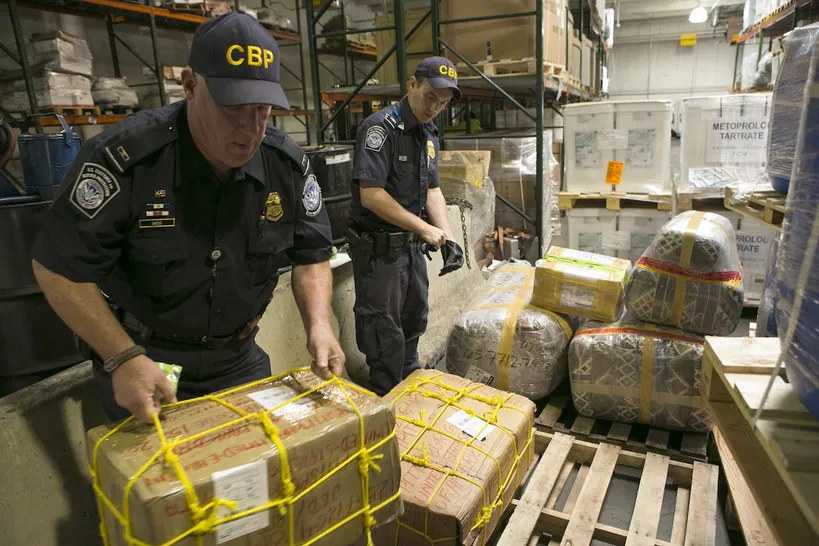Proposed Legislation to Ensure Sustainable Port Operations
A recent House bill has been put forth to tackle critical operational challenges faced by U.S. ports. By addressing the financial burden on ports related to inspection services, this proposed legislation could significantly enhance the efficiency of logistics and operations at maritime gateways.
Key Highlights of the Bill
- The American Association of Port Authorities (AAPA) backs the SPACE Act, which aims to clarify Customs and Border Protection’s (CBP) authority regarding lease agreements and funding for port inspection services.
- The act calls for federal funding dedicated to CBP inspection operations, a responsibility typically shouldered by the federal government only.
- Besides securing financial backing, the legislation seeks to improve port infrastructure and overall supply chain security by leveraging existing CBP user fees.
- The bill enjoys widespread support from various trade and transportation organizations, all emphasizing that efficient port operations are vital for the U.S. economy.
Why the Bill is Essential for Port Operations
Port operators are rallying behind this initiative, especially with the anticipated expansions in operational demands. The AAPA has formally endorsed the reintroduction of this bipartisan measure, aimed at ensuring adequate funding for CBP operations essential to maintaining optimal performance at U.S. ports.
The recent summary from lawmakers highlights that the SPACE Act also aims to rectify enforcement gaps linked to inadequate infrastructure and proposes a streamlined coordination framework between port authorities and CBP for improved U.S. supply chain security.
歴史的背景
Traditionally, the costs associated with essential government inspections at ports fall under federal jurisdiction. Cary Davis, AAPA President and CEO, emphasized the historical context of these responsibilities in a release: “The costs of government inspection operations are historically and constitutionally a federal responsibility.” With this understanding, the proposed bill aims to uphold these federal responsibilities without putting additional financial onus on port operators.
Potential Ramifications of the Legislation on Logistics
With escalating operational costs, there is pressure for ports to cover the expenses associated with screening equipment necessary for maintaining rigorous health and safety standards. If ports are forced to absorb these costs, it could lead to significant operational halts, adversely impacting logistics across the U.S. supply chain.
Moreover, it has been noted that many CBP officers currently operate in temporary facilities due to restrictions that limit long-term leasing agreements. By passing this act, it is hoped that existing user fees collected by CBP can be repurposed, creating a more transparent and sufficient financial strategy at the federal level.
The Broader Significance of Port Efficiency
Given the economic importance of ports as gateways for international trade, enhancing their operational efficiency could offer substantial benefits. As Richard J. Hendrick, CEO of the Port of Albany, pointed out, the global pandemic has made more people aware of the significance of supply chains and the intricate web connecting ports with their partners to keep products moving smoothly.
The bill has gathered support from a coalition of 27 trade, supply chain, transportation, and agriculture organizations, showcasing its multifaceted importance. According to the AAPA, this legislation is crucial not only for operational efficiency but also for enhancing the resilience of the supply chain. With federal funding for CBP secured, ports could redirect resources toward critical infrastructure upgrades, ultimately boosting the economy.
Statements from Port Leaders
Port leaders have underscored how the proposed legislation would facilitate a cooperative framework that enhances the effectiveness of U.S. ports. Julianna Marler, CEO of the Port of Vancouver, Wash., affirmed, “Ports’ roles as economic engines and gateways for American products are strengthened when CBP is doing all it can to support them.”
結論
The bill seeking to limit Customs’ billing for inspection services represents an important step toward ensuring that U.S. ports maintain their critical role in logistics and trade. Enhancing cooperation and securing funding could create a robust operational framework to meet the ever-evolving demands of global supply chains.
While reviews and feedback are helpful in evaluating public sentiment, the true utility of these measures will be realized through direct engagement and experience. GetTransport.com presents an accessible gateway to navigate cargo transportation efficiently, offering affordable, global logistics solutions designed to help businesses and individuals alike manage their delivery needs. From office relocations to substantial cargo deliveries, GetTransport.com is committed to streamlining logistics, ensuring that both local and international transport demands are met seamlessly. For those looking to streamline their logistics and benefit from a convenient and reliable service, it’s time to take action. 予約する GetTransport.comをご利用ください!

 港湾の税関検査費用規制を目的とした新法案">
港湾の税関検査費用規制を目的とした新法案">